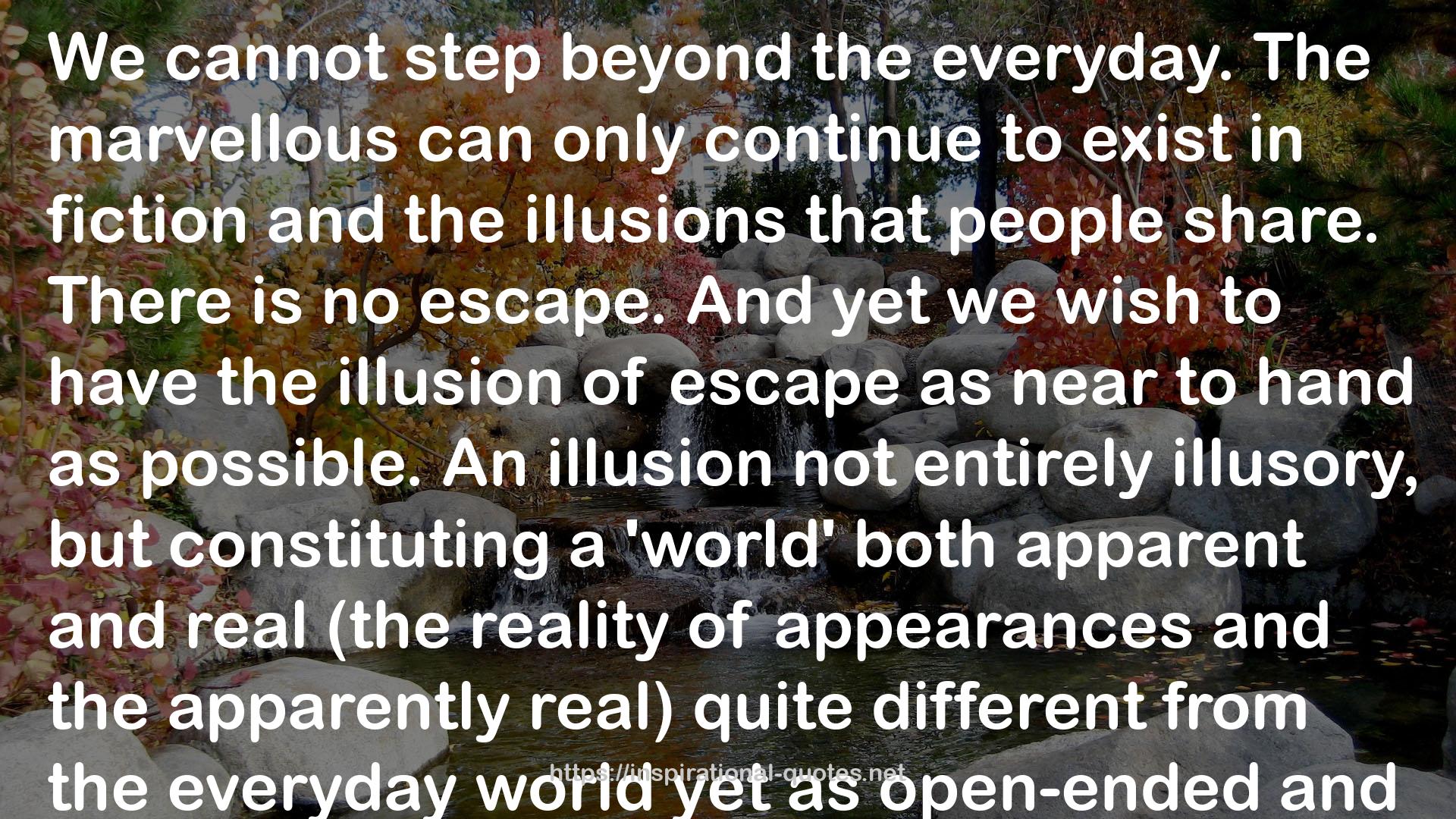" We cannot step beyond the everyday. The marvellous can only continue to exist in fiction and the illusions that people share. There is no escape. And yet we wish to have the illusion of escape as near to hand as possible. An illusion not entirely illusory, but constituting a 'world' both apparent and real (the reality of appearances and the apparently real) quite different from the everyday world yet as open-ended and as closely dovetailed into the everyday as possible. So we work to earn our leisure, and leisure has only one meaning: to get away from work. A vicious circle.
“Thus is established a complex of activities and passivities, of forms of sociability and communication which the sociologist can study. Although he cannot describe or analyse them without criticizing them as being (partially) illusory, he must nevertheless start from the fact that they contain within themselves their own spontaneous critique of the everyday. They are that critique in so far as they are other than everyday life, and yet they are in everyday life, they are alienation. They can thus hold a real content, correspond to a real need, yet still retain an illusory form and a deceptive appearance. (62) "
― Henri Lefebvre , Critique of Everyday Life
